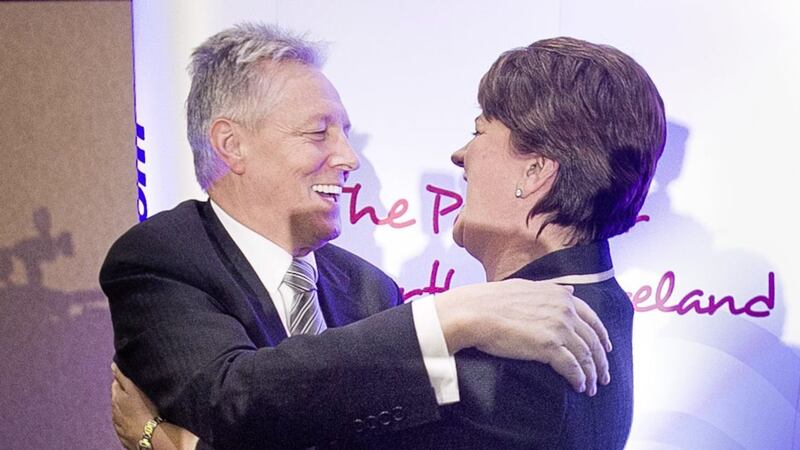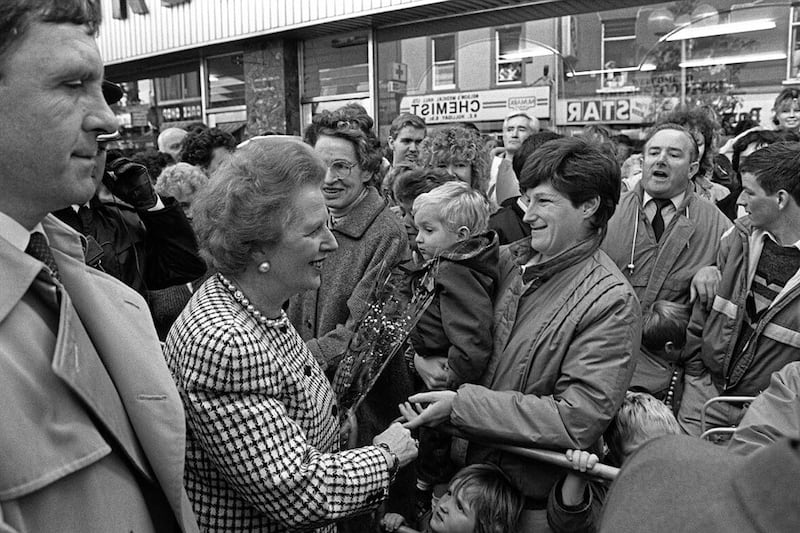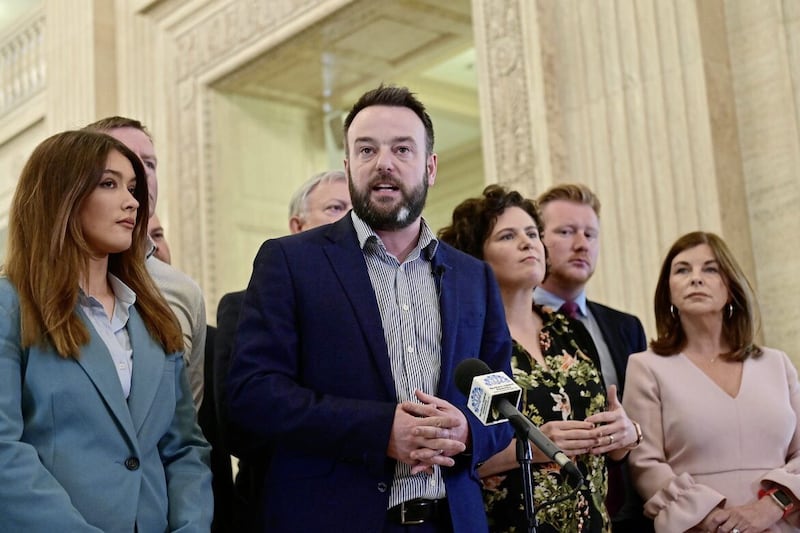There is nothing quite so annoying as a back seat driver. You can almost sense them slamming on an imaginary brake.
Worse still is giving you unwanted advice. Arlene Foster knows that feeling. She has a backseat driver displaying all those annoying traits. His name is Peter Robinson, formerly of the big job on the hill.
Arlene has a problem. She cannot ignore Robinson. But she should. Former political leaders are full of advice - usually the sort of advice they never implemented when in power.
Peter got an earful some years ago when the late Seamus Mallon told him some home truths in front of an entire audience at Queen's University. As I recollect the former first minister was not overly impressed.
Robinson’s rather unhelpful current intervention on the Northern Ireland Protocol heaps further pressure on an already beleaguered first minister. In his News Letter column, he correctly criticised the DUP strategy for dealing with the protocol.
Robinson is right, petitions are a dime a dozen at Parliament. Street agitation is not an option either because one, they are not sustainable and two, they tend to attract undesirable elements which are hard to shake off.
All that said, Robinson’s narrative is confusing and the conclusion is wrong but unsurprising. The NI Protocol is not the enemy. It is an opportunity. An opportunity out of the wreckage that is Brexit. An opportunity Scotland would take in a heartbeat. An opportunity unique to Northern Ireland.
Robinson tells former DUP colleagues to either live with the ‘sea border’ or fight it properly. By this he seems to suggest pulling the rug on Stormont.
This would be a catastrophic act of political self harm and would simply compound the folly of the DUP who pursued a reckless hard Brexit in the vain hope there would be the reinstatement of a physical border within the island of Ireland. That gamble did not pay off.
British national interests will always take precedence over any regional upset no matter how much unionists try to recall the Ulster Division’s sacrifice at the Battle of the Somme. Even Sir Edward Carson saw that coming.
Since 1912 successive unionist leaders have used the same tactic of bluster and bullying and each time with less effect than before. But this is not 1912 - there are no guns to run. It is not 1921 with a Protestant parliament. Or 1974 with the treacherous loyalist workers strike. Or 1985 with the vast but pointless protests over Anglo-Irish Agreement or even 1997 and the tragedy of Drumcree.
This is 2021. A year unionists want us to celebrate.
At this stage that looks about as enticing an invitation to attend a party organised by QAnon and the Proud Boys.
Truculent unionist leaders are stuck in a Brexit hole and are still digging. They keep looking over their shoulders at Jim Allister and other fringe loyalists when they should be looking in the other direction at the haemorrhaging of younger unionist voters to the Alliance party.
Unionist leaders simply don’t get the reality that only they and their feckless actions imperil their precious Union.
No one’s identity, nationality or constitutional status in Northern Ireland is threatened by the failure of Amazon to deliver a cat condo, fibrous cereal or a pair of alpaca print breathable panties.
It is hard to credit the insecurity caused within political unionism over checks and inspections at ports and airports which are virtually invisible to the average consumer.
More pragmatic unionist leaders know that any difficulties are temporary and arise from the break up of established supply and distribution lines. They cannot ignore for much longer the voice of businesses and civic society which prefer the protocol to more uncertainty.
The taoiseach is correct to listen to the concerns or sense of isolation felt by unionists but the solution to their sense of security and place lies embracing the opportunities that change brings.









